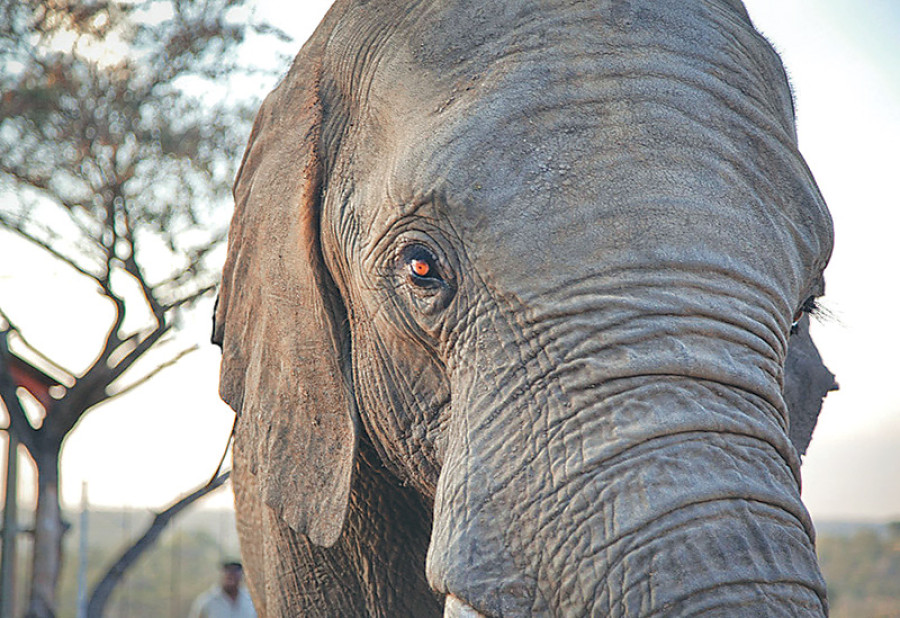National
Lung disease rate declines in Tarai elephants
The incidence of tuberculosis (TB) among domesticated elephants in Tarai region has slowly declined, a senior veterinarian has said.
Chandan Kumar Mandal
The incidence of tuberculosis (TB) among domesticated elephants in Tarai region has slowly declined, a senior veterinarian has said.
Speaking to the Post, Chitwan National Park (CNP) Senior Veterinary Dr Kamal Gaire said, “The rate of TB infection among elephants has come under control compared to previous years. Complete eradication of TB is not possible in a short span of time, but we have made significant progress so far in the last few years.”
Saturday marked the World Tuberculosis Day.
TB was once a major health hazard for elephants domesticated by private owners and government departments.
The incidence of this lung disease has dropped significantly in elephants from CNP and Parsa National Park (PNP). Tuskers owned by entrepreneurs for tourism and recreational business show a similar decline, he said. Domesticated elephants pick up TB bacterium from humans because of close contact. TB in elephants is a zoonotic disease caused primarily by Mycobacterium tuberculosis, the same bacterium responsible for pulmonary diseases in humans.
Results of a 2012 test showed 23 per cent of 200 elephants examined belonging to national parks and private businesses had TB.
“We started treatment after confirming the elephants had TB infection. Some died while others recovered well,” said Gaire. According to the National Trust for Nature Conservation (NTNC) statistics, 15 elephants died because of TB up to 2014.
Last week, another TB-infected elephant died at the PNP. While examining the sick elephant, the veterinary doctor found lesions in its lungs, confirming the cause of death was TB.
More than a decade ago in 2007, veterinarians treated 61 elephants diagnosed with TB.
Tests done in 2016 showed nine from 93 elephants examined suffered from TB, indicating a drop in the infection rate. According to Gaire, growing age, excessive work and less amount of food make elephants vulnerable to TB bacteria attack.
“Most of the elephants we have these days are young, which makes them less prone to TB infection. A preliminary analysis of one of our recent studies shows there is no rise in the incidence of TB in elephants,” said Gaire.
Wildlife experts say early diagnosis helps in controlling TB in infected animals.
Early identification and treatment of infected captive elephants also helps in eliminating the probability of passing TB to other wild elephants and their caretakers. Recently, officials found a CNP rhino infected with TB.
“Early treatment cures infected elephants,” said Gaire. “We isolate infected elephants from humans and healthy elephants so that the disease does not transmit to others. Treating one TB-infected elephant costs around Rs. 500,000.”




 9.7°C Kathmandu
9.7°C Kathmandu














